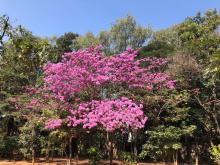
Abstract: Graphic narratives allow for a collective remembrance of the past, accommodating a polyphony of experiences and perspectives. They also offer a medium through which the uncertainties of knowledge-making can be literally made visible. This talk will look at Malik Sajad’s graphic memoir Munnu: A Boy from Kashmir for its representation of intersections between journalism, cartoons, history and memory. Though the book begins as a traditional kunstlerroman, it ends up being the story of the entire Kashmiri society. The interaction of the personal, political, familial and professional is evident in the text as knowledge is created through a fictional documentation of the past. The talk emphasises a reading of Munnu as a narrative which challenges dominant discursive modes through graphic art while also noting how journalism interferes with the agency of the subject being recorded. The surveillance of the journalists mirrors the surveillance by the state both of which dehumanise the subjects of conflict. Sajad becomes more of a memory keeper of his community while constantly shifting roles; from memoirist to journalist to historian to cartoonist. The constructed nature of ethnographic and historical documents becomes clear while the author considers questions of ethics surrounding representation. Though journalism can be a form of record-keeping, the memoir critically reflects upon its value and thus becomes more of a testimonial account which seeks to humanize history. As such, Sajad’s subject position becomes important as he engages in perpetual self-reflection, aware of his role both as an actor and a witness.
About the speaker: Sarah is a Ph.D. Scholar at NIAS. Her research focuses on experimental life-narratives, especially those which challenge restricted textual spaces and dominant structures of knowledge and representation.
